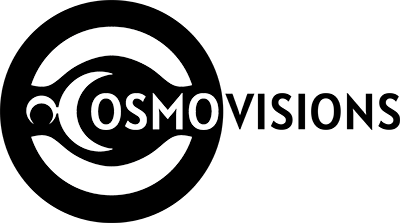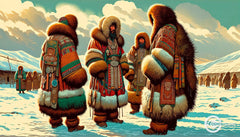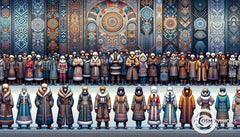Discover The Meaning And Significance Of Yakut Names Exclusively From Siberia's Yakut People
Posted by Massimiliano Geraci

In the heart of Siberia, names hold a power that weaves through the fabric of culture and identity. You might be seeking a deeper connection to your heritage or simply captivated by the mystique surrounding Yakut names.
These unique identifiers carry with them stories and meanings that reach back into the rich tapestry of history, where every syllable resonates with life's essence.
Among the icy rivers and vast tundra of Yakutia live the Sakha people, whose language dances to a rhythm unlike any other Turkic tongue. This blog will guide you on an exploration into their world, revealing not just how they name their children but why these choices are laden with such personal and cultural significance.
Uncover what lies behind names like Ayaan or Elnara, as we delve into traditions that have shaped identities for generations.
Ready to decode an ancient linguistic puzzle? Let's unveil the secrets together!

Traditional Yakut Names
Delve into the rich tapestry of Traditional Yakut Names, a fascinating blend of indigenous culture and Soviet influence where each name carries its own unique story and significance.
Discover how these names not only denote identity but also embody the spiritual beliefs and historical journey of the Yakut people.
Delve into the rich tapestry of Traditional Yakut Names, a fascinating blend of indigenous culture and Soviet influence where each name carries its own unique story and significance.
Discover how these names not only denote identity but also embody the spiritual beliefs and historical journey of the Yakut people.
Derived from Soviet Union tradition
Names carry the weight of history, and in the Republic of Sakha, this is profoundly evident. The Yakut people's names have roots deeply entrenched in the traditions established during Soviet Union times.
This era marked significant changes, as Christianization swept through, leaving a long-lasting impact on Yakut personal names. Gradually, many indigenous Siberian tribes began to adopt Russian first names and surnames.
Each name tells a story; some reflect an ancestor or an aspect of nature that held special significance to a newborn's family. Others are Russified forms that blend Turkic languages with Russian linguistics to create harmonious phonetic blends.
These adaptations highlight how culture evolves over time – preserving ancient beliefs while also embracing new influences. Such transitions showcase resilience and the ability to preserve one’s identity despite external pressures.
The transition wasn't merely about assimilation; it mirrored the Yakuts' pragmatic approach towards modernity without forsaking their rich cultural tapestry. They choose names not just for their melodic quality but also for function within society—official documents now often bear these Russified monikers alongside traditional Sakha appellations—a testament to history’s imprint and its ongoing dialogue with the present.
Male and female names
As the thread of Yakut naming traditions weaves through history, male and female names emerge with distinct cultural significance. These names carry more than just identity; they embody ancient wisdom and the spiritual connection to nature that is deeply rooted in Yakut culture.
Female names often capture the essence of beauty found in Siberian flora, suggesting a woman's grace and resilience be as enchanting as the scarce blossoms of Taiga. Künnei might be whispered across the tundra, a name hoping for its bearer to radiate warmth like sunlight on cold soil.
Male names hold their own unique narratives, sometimes reflecting desired attributes such as strength or bravery. They serve not only as identifiers but also as guardians against misfortune, carrying with them the courage of ancestors who tread before on frozen ground.
A young Baasa may grow up hearing tales under starry skies with his nickname Vasya spoken among family, connecting him to generations past. Each name given is an inheritance – a word carefully selected to guide one through life’s journey under the Northern Lights.

Yakut Submitted Names
Delve into the unique tapestry of Yakut culture through the names directly bestowed by its people; these appellations, steeped in heritage and distinction, showcase a linguistic roadmap to understanding this enigmatic ethnicity from Siberia.
These submitted names emerge as a living archive, capturing ancestral wisdom and embodying the essence of their identity with each syllable.
Unique names submitted by Yakut people
Unique names play a crucial role in the Yakut culture, highlighting their connection to nature and spirituality. The Yakut people of Siberia submit names that bear more than just an identity; they carry within them stories, character traits, and aspirations for those who hold them.
These submissions are often inspired by positive elements found in their surroundings or desired qualities they hope to see manifested in the individual.
Creating a name is considered an art form among the Yakuts. They carefully select words that resonate with power and beauty from the natural world—be it animals, celestial bodies, or even revered virtues like bravery and wisdom.
This practice reflects their belief that giving a child a name with such significance can shape their destiny and align them closer to nature's harmony.
10 random Yakut names, surnames, and patronymics
Delve into the heart of Yakutia with these ten enchanting names that capture the essence of its people and their history. From Aisen, meaning "the chosen one," to Nyurgun, whispering tales of ancient spirits, each name is a thread in the vibrant tapestry of Sakha culture.
Surnames like Fedorov speak to Russian influence, while others such as Keskil reflect unique ancestral connections. Patronymics add depth with their Soviet heritage; for instance, Ivanovich denotes "son of Ivan" and carries stories from generation to generation.
Imagine calling out across the frozen tundra with names like Elley or Manchaary – their sounds melding seamlessly with nature’s vast expanse. These names are not just labels; they are echoes of heroism and poetry that resonate through the traditions held dear by Sakha families.
Venturing forward, we turn our attention to those who have etched their identities into history's annals – famous Yakuts whose legacies shine brightly against Siberia's backdrop.
Famous Yakut Names
Dive into the rich cultural tapestry of Siberia as we explore the stories and meanings behind famous Yakut names, where tradition meets legacy. From Ayaan's symbol of bright beginnings to Bulus's nod to historic valor, these names carry with them both personal identity and collective heritage.
Meaning and significance of names
Names carry the weight of history and tradition, each one rich with its own story and significance. The Yakut people honor their heritage by selecting names that reflect the beauty of nature or embody positive attributes, like strength or wisdom.
These monikers are not just tags for identification; they represent an individual's connection to their culture and the natural world. As a bridge between ancient practices and present-day customs, names such as Künnei, Tuiaara, and Dokhsun continue to resonate deeply within the community.
Yakut children once received names tied to 'bad' or 'disgusting' objects in an effort to ward off evil spirits—a stark contrast to today’s practice of choosing uplifting namesakes.
Presently, Yakut parents prefer naming their babies after elements that bring joy or have beneficial meanings which is believed will bestow good fortunes upon their children throughout life.
With every name given comes expectations of character; it’s more than just syllables put together—it's a reflection of hope for the child's future amidst both urban buzz and rural tranquility in this remote northeastern region steeped in spirituality.

Examples: Ayaan, Aishat, Bulus, Elnara, Aksana
Ayaan resonates with the spirit of wind and wisdom, a name that stands tall among the Sakha people for its connection to intellect and guidance. Aishat brings forth connotations of life and vibrancy, often associated with women who are central to the warmth of family life in Yakut villages.
Bulus carries strength and solidity, echoing the robust nature of Siberian landscapes — a popular choice for boys symbolizing steadfastness.
Elnara captivates with its allusion to the light of a flame, illuminating paths as it reflects one's inner fire and pursuit of truth. Aksana hints at femininity laced with grace; it is a cherished pick for girls evoking beauty intertwined with cultural depth.
Each name serves not just as identification but as an embodiment of Yakut heritage — pride elegantly woven into every syllable pronounced.
These names empower individuals within their community by connecting them to their ancestry’s narratives, enchanting those who cherish anthropology, spirituality, and indigenous art.
They stand testament to identity preservation amidst evolving times where Russian names have gained popularity since 1917 revolution influences officially mingled traditions. Yet these unique monikers thrive today as symbols of resilience against cultural homogenization amongst Siberia’s Yakut population.














